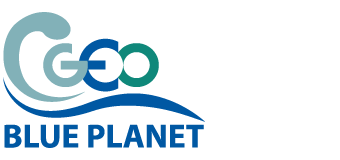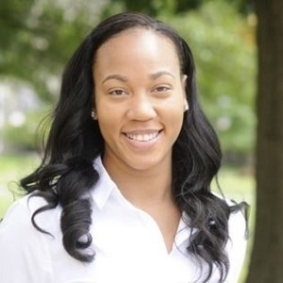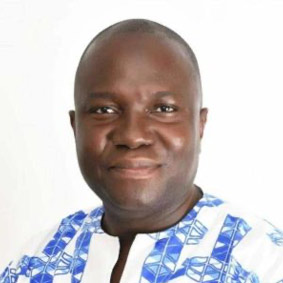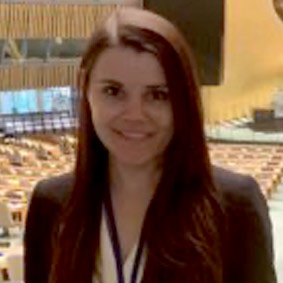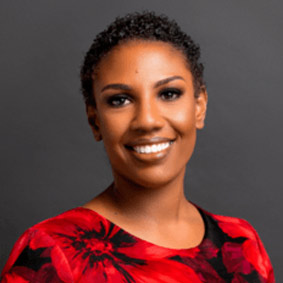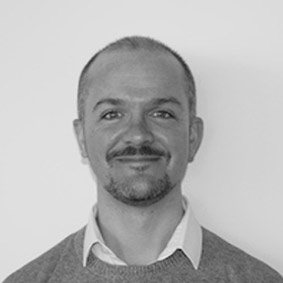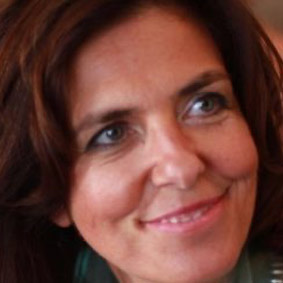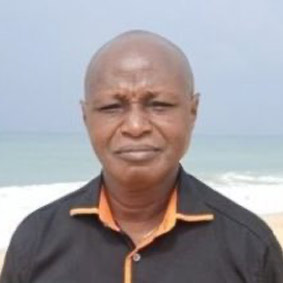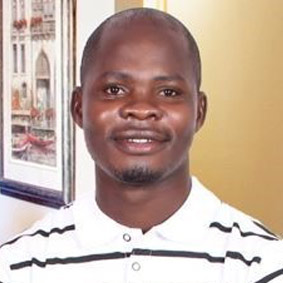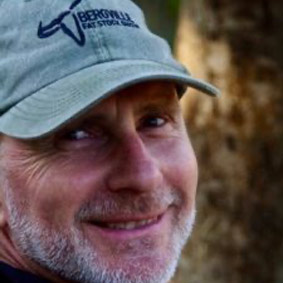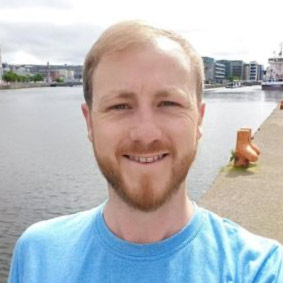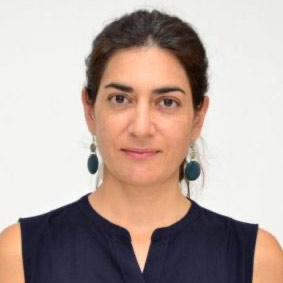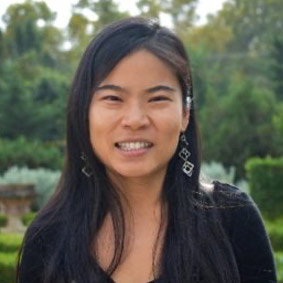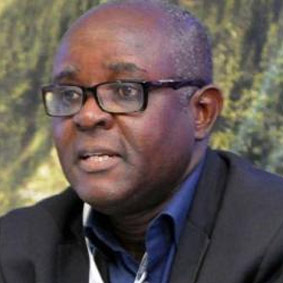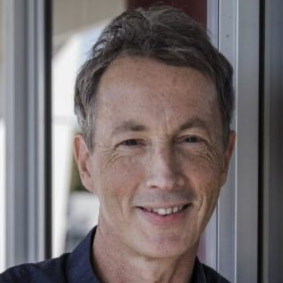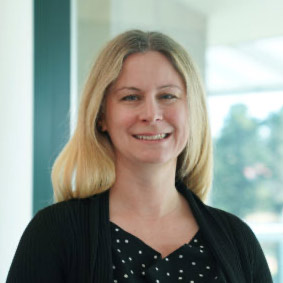GEO BLUE PLANET 5TH SYMPOSIUM
Nikelene Mclean
NOAA
Nikelene Mclean is the 2022 National Sea Grant Knauss Marine Policy Fellow supporting the GEO Blue Planet initiative. She currently works in the Satellite Oceanography and Climatology Division of NOAA/NESDIS/STAR. She is actively engaged with several projects in GEO Blue Planet geared towards the integration of Earth Observations data into the decision support frameworks used to address climate adaptation, coastal and marine pollution as well as sustainable fisheries and aquaculture. Originally from the Caribbean islands of St. Vincent and the Grenadines, Mclean is a Ph.D. candidate at Morgan State University and has a background in coastal geospatial ecology and remote sensing.
Dr. Stewart Benard
South African National Space Agency (SANSA)
Stewart Bernard holds a PhD in bio-optics and a MSc in Physical Oceanography from the University of Cape Town, South Africa, and a BSc Hons in Oceanography with Physics from the University of Southampton, United Kingdom. His key scientific competencies are in the field of ocean colour, specifically in the bio-optical modelling and characterisation of phytoplankton and the development of new ocean colour methods to observe the phytoplankton community. He has also led the development of new capabilities for operational aquaculture and fisheries services. He has played a strong role in international community building and was chair of the International Ocean Colour Co-ordinating Group from 2014 – 2017. He is currently Chief Scientist at the South African National Space Agency (SANSA) where he is responsible for shaping the national Earth Observation research agenda, Earth Observation service & mission planning, and leading SANSA Earth Observation R&D.
Dr. Isa Elegbede
TGER/CEESP/IUCN, Switzerland and Department of Fisheries, Lagos State University, Nigeria
Dr. Isa Olalekan Elegbede (Ph.D.) bagged his doctorate degree in Environmental science, specializing in ocean and coastal resources sustainability at the chair of environmental planning, Brandenburg University of Technology (BTU) Germany. He is an adjunct professor at Department of Environmental Sciences, National Open University of Nigeria, He is also a full time academics at the fisheries department, Lagos State University, Lagos, Nigeria. Before now, He lectured on marine sustainability at the Brandenburg University of Technology (BTU), Germany. He is also a co-chair of the GEO BON Blue Planet fisheries working group, Deputy chair of the IUCN/CEESP/TGER, Switzerland, and a Fellow of the Future Earth Coast (FEC). He is also a Central and South Atlantic Regional Scientific Research Working Group member, coordinating regional deep-sea research. Also a member of the fisheries – DOSI – Deep Ocean Stewardship Initiative.
Likewise, he was the head of research, innovations, and development at SaeioGlobal (SGL), where he managed and implemented various projects from NSF, USA, European Union, and GIZ, Germany.
He has a wealth of interdisciplinary background and experiences in data innovations and management, data inclusivity, citizen science and open science. Thanks to his resilience and hard-working attitude- he obtained a BSc in Fisheries at the Lagos State University, Nigeria, an MSc in Marine Sciences at the University of Lagos, Nigeria, and also an MSc in Environmental and resource management at the Brandenburg University of Technology (BTU), Germany with several international professional training and certifications. He was a visiting fellow and Scholar of the Ocean Frontier Institute (OFI) and the Robin Rigby Trust (RRT) at Dalhousie University, Halifax, Canada, where he has contributed to teaching, research, and capacity-building activities within the university. He has committed to knowledge dissemination in Africa as a diaspora expert under the german governmental agency, the Deutsche Gesellschaft für Internationale Zusammenarbeit (GIZ) GmbH, and the German Federal Employment Agency. Several awards and grants have been awarded to his credit. Isa has participated, contributed, and volunteered in several international capacities and collaborative initiatives in many SDGs across the globe. He is an alumnus of the graduate programs in oceanography at the Sao Paulo School of Advanced Sciences, Brazil, and an honorary member of the Indigenous and community conserved area (ICCAs), Switzerland.
Dr. Greg Duggan
Abalobi
Dr Greg Duggan is Head of Impact & Special Projects at ABALOBI, an African social enterprise co-designing ICTs that elevate small-scale fishers’ access to digital technologies and markets. Greg has been deeply involved in the small-scale fisheries sector for the past 14 years and has a passion for co-design and co-developing real-world solutions on the ground with local people.
Twitter: @abalobi_app
Prof. Wisdom Akpalu
Institute of Management and Public Administration, Ghana
Wisdom Akpalu is the Dean of the School of Research and Graduate Studies (SRGS) at the Ghana Institute of Management and Public Administration (GIMPA) in Accra, Ghana, and the Director of the Environment for Development Initiative in Ghana (EfD-Ghana). He is the immediate past (inaugural) president of the African Association of Environmental and Resource Economists (AFAERE), A member of the World Council of Environmental and Resource Economics Associations (WCEREA), a partner of the One Ocean Hub (OOH), and the Vice-Chair of the Scientific and Technical Committee (STC) of the Fisheries Commission of Ghana.
Before joining GIMPA, he was an Associate Professor of Economics at the State University of New York (SUNY), Farmingdale, New York, USA; and a Research Fellow at the United Nations University’s World Institute for Development Economics Research (UNU-WIDER). Since 2013, the Africa Economic Research Consortium (AERC), which is the biggest consortium of economists on the continent, invited him to be a resource person to mentor junior researchers across the African continent.
Prof. Akpalu is an avid researcher interested in social and behavioral economics and the biophysical and economic dynamics of marine ecosystems. His works have been published in journals such as Nature Communications, Review of Environmental and Resource Economics, Marine Resource Economics, Ecological Economics, Marine Policy, Energy Policy, Environment and Development Economics, Climate and Development, Bioeconomics, and Natural Resource Modeling. In September 2022, the Environment for Development Initiative (EfD) awarded him a certificate of recognition for his policy impact on fisheries management in Ghana.
Dr. Angela Lamptey
University of Ghana
Experienced Fisheries and Aquatic Scientist with more than eighteen (18) years’ experience in the field of Fisheries Ecology, Taxonomy and Management; Biodiversity Ecology and Conservation (seabirds, turtles and mammals); and Aquatic Ecology (water and sediment quality assessment). Innovative, smart and committed Scientist with proven history of quality and timely research output. An individual who prioritizes working alongside clients in order to achieve the desired results in an effective and efficient manner. Familiar with marine, brackish water and coastal ecosystems as well as all stages of project design and implementation, Biodiversity Management Plan, Environmental Impact Assessment and Fisheries Impact Assessment. She is a Reviewer and an Author for a number of International Scientific Journals. She is affiliated to Ghana Science Association, Society for Conservation Biology (SCB), British Ornithologist Union and Royal Society of Chemistry (RSC). In Ghana, she is a Fisheries, Maritime, Ecology and Biology Consultant to a number of Maritime and Environmental CSOs (ESL, CEMLAWS Africa, CSDS Africa) and various governmental agencies notably the Ministry of Fisheries and Aquaculture Development, Ghana Education Service, amongst others. Internationally, she has consulted for CIDA, DANIDA, AUC, IFC, DFID and the World Bank through various projects. She was nominated in 2016 as an Independent Expert by the African Union Commission to be part of the Adhoc Experts Group drafting the annexes for the finalization of the Lomé Maritime Charter. She has been involved in the training of Fisheries Observers and Fish Processors over the past 5 years. She has been involved in the preparation and documentation of the National Integrated Maritime Strategy of Ghana. She is currently the Chairperson for the Scientific and Technical Committee of the Fisheries Commission of Ghana. She is a fulltime Lecturer and Researcher at the University of Ghana. A human rights advocate, motivational speaker to various youth groups and a Career Guidance Advisor to young ladies in Second Cycle Schools.
Dr. Rebecca Essamuah
Centre For Maritime Law And Security Africa
Rebecca is a Senior Researcher at the Centre for Maritime Law and Security, Africa (CEMLAWS Africa) where she leads consultancy on the Vibrant Oceans Initiative (VOI) project: Transparency in Ghana’s Fisheries Sector and assists in other maritime governance, research, and policy projects.
Following her degrees in Oceanography and Fisheries at the UG., her Ph.D. thesis as a beneficiary of the USAID-UCC Fisheries and Coastal Management Capacity-Building Support project was focused on the ‘Development of a Decision Support System for prioritizing the Management of Coastal Watersheds’. As a visiting scholar at the University of Rhode Island, she audited courses in Coastal Governance, Marine Pollution, and Port Planning & Policy. This influenced her assessment of the institutional framework in support of coastal governance in Ghana.
She lectures on a part-time basis at the Regional Maritime University, Accra.
Twitter: @RebeccaEssamuah
Katie Geddes
University of Miami, ORTA NOAA
Katie Geddes is a Program Analyst in the NOAA Office of Research, Transition, and Application (ORTA) and a PhD student at the University of Miami Rosenstiel School of Marine and Atmospheric Science. With educational training and work experience across the biological and social sciences, she is interested in bridging the gap between marine science and the human communities that are most affected by the health of the ocean. Katie is particularly interested in working in international contexts and she has worked at NOAA for the past six years coordinating among NOAA and its national and international counterparts to advance oceanic, atmospheric, and climate observations research and applications around the world. She also possesses professional experience at the U.S. National Park Service and the White House Council on Environmental Quality.
Dr Marie Smith
Council for Scientific and Industrial Research (CSIR), South Africa
Dr. Marie Smith is a senior researcher in the Coastal Systems and Earth Observation research group at the Council for Scientific and Industrial Research (CSIR), South Africa. She holds a PhD degree in Ocean and Atmosphere Science from the University of Cape Town (UCT) where she is an Honorary Research Associate of the Department of Oceanography. She has specialized in marine remote sensing for 15 years with a focus on harnessing satellite earth observation data for coastal marine applications such as harmful algal bloom (HAB) detection, water quality monitoring, as well as aquaculture and fisheries decision support.
Bennet Atsu- Foli
University of Ghana
Bennet is a marine scientist whose experience cuts across various areas of biological, chemical and physical oceanography, with the application of remote sensing and Earth Observation (EO) as a tool to addressing issues in these and other areas. He has worked with the University of Ghana for more than 10 years including working on the Monitoring for Environment and Security in Africa (MESA) project and currently on the Global Monitoring for Environment and Security and Africa (GMES & Africa) phase-2 programme. He developed the ocean state early-warning system that provided alerts on ocean conditions to fishermen as well as all ocean users in West Africa by the University of Ghana under the MESA project, which has been enhanced for wider dissemination under the GMES & Africa phase 1 and 2 programme.
Bennet has been involved in mentoring both the young and old in the use and application of satellite EO data and products. His current responsibility with the University of Ghana includes developing oceanographic products and services using EO data, provision of training in shoreline management, and ocean modelling and forecasting.
Dr. Shelly Ann Cox
Blue Shell Productions
Dr. Shelly Ann Cox is an experienced Fisheries Management Specialist, Oceanpreneur and mother of a 3-year old aquatoddler. She is the Founder and CEO of the boutique consultancy firm Blue Shell Productions, which specialise in blue economy consulting, event planning and management, and science communication. Dr. Cox has more than 10 years’ experience in fisheries management, sargassum management and governance and applied interdisciplinary climate related research. Shelly-Ann is currently engaged as the Coordinator and Co-editor of the Subregional Sargassum Outlook Bulletin for the eastern Caribbean. She is also the Knowledge and Information Management Consultant for the Sargassum Information Hub.
Twitter: @shellyanncox
Dr. Rory Scarrott
MaREI Centre, Environmental Research Institute, University College Cork
Dr. Rory Scarrott is a graduate of University College Cork, with a B.Sc. in Applied Ecology, a Joint MSc. in Geo-information and Earth Observation for Environmental Modelling and Management (studying in the Universities of Southampton, Lund, Warsaw, Boston, and in ITC (University of Twente), and a Ph.D.(Sc) in Geography from UCC. For over a decade, Rory has been working in the applications arena of Earth Observation, mapping peatlands, conducting hypertemporal analyses of ocean surface data, and connecting space technology and various Earth Observation infrastructure to sectors of the Blue Economy. Rory is specialized in stakeholder engagement, and requirements analysis, working with stakeholders to identify opportunities for new technologies to aid them, and help refine their needs into guidance for technology innovators to respond to. He is currently working on the E.U. H2020-DOORS Black Sea project, connecting Blue Economy stakeholders to opportunities in Europe’s advanced data and information analysis systems, and the European Space Agency-funded Blue Economy Project, charting a way forward for ESA to help Innovation Clusters enhance satellite data use and uptake in Atlantic Regional Seas
Prof. Isabel Sousa-Pinto
Coastal Biodiversity Laboratory / CIMAR)
Isabel Sousa Pinto is a Professor at the University of Porto, member of the Board of Directors of CIIMAR and Co-Chair of GEO BON/MBON – GEO Marine Biodiversity Observation Network and Euromarine a consortium of marine research institutions, serving also in different European and International steering Committees as European Ocean Observation System (EOOS) and AtlantOS. She has a PhD in Marine Biology (phycology) from the UCSB, USA, and her main research has been on marine biodiversity and ecosystem functioning and services, with a particular focus on the macroalgal forests conservation and restoration, as well as on algal ecophysiology, cultivation and sustainable use.
Isabel is also working on science-policy-society interfaces and on promoting ocean literacy, was part of the Portuguese delegation to the Convention on Biological Diversity (2006-2011) and has been since working with IPBES – the Intergovernmental Panel on Biodiversity and Ecosystem Services as a Portuguese representative, as an expert, including being a Coordinating Lead Author for the Regional Assessment of Biodiversity and Ecosystem Services in Europe and Central Asia, and then elected in 2018 for its MEP (Multidisciplinary Expert Panel) that works as its scientific coordinating panel.
Dr Ir. Zacharie Sohou
Vice-Chair of IOC Sub Commission for Africa & the Adjacent Island States (IOCAFRICA)/OI/UNESCO and Director of the Benin Fisheries & Oceanological Research Institute
Dr. Zacharie Sohou brings over 30 years of working in biological oceanography, marine ecology, fisheries, and aquaculture, to set the scene of the Ecosystem Conservation session. He is Director of the Benin Fisheries and Oceanological Research Institute (IRHOB) of the Benin Center for Scientific Research and Innovation (CBRSI). He is bringing his perspectives as a professor, lecturer and researcher in multiple institutions. In addition, Dr. Sohou has experience across a wide range of national and international committees with which he will set the scene of the plenary. For example, he a member of the Abdijan Convention’s Committee on Science and Technology, and the focal point of the Intergovernmental Oceanographic Commission (IOC/UNESCO) and IODE, and the national focal point for IOCAFRICA. He is also the National Coordinator of the ODINAFRICA Program of the IOC, the Research Program on Marine Mammals, and is a member of the United Nations group of experts for the drafting of “World Ocean Assessment I & II”.
Niccolo Bassan
UNEP GEMS Ocean
Niccoló is a graduate of the University IUAV of Venice and other institutions across Europe, among which the University of Sevilla and the University of Azores with a BSc. in Architecture, and a joint MSc. in Maritime Spatial Planning. For over 5 years he has been working in planning and management of marine and coastal areas, and sustainable blue economy development through the involvement in numerous EU funded projects, consultancies and technical support to national authorities. He is currently an Associate Expert in the UN Environment Programme working in the Global Environment Monitoring System for the Ocean and Coasts (GEMS Ocean) Programme focusing in integrating global observing systems to provide fit-for-purpose information and data to member states and support policy making to conserve and restore coastal and marine ecosystems.
Gabriel Akoko Juma
Early Career Ocean Professionals (ECOPs) -African Node
Gabriel Akoko Juma is a PhD Candidate in Coastal Ecology at the University of Bremen – Germany. He holds a Postgraduate Diploma in Oceanography from Alfred Wegener Institute (AWI) and MSc in Environmental Science from Chuka University-Kenya. A member of Early Career Ocean Professionals, African Regional Node (ECOP Africa), Gabriel’s interests include coastal ecology with focus on the role of terrestrial runoff on nearshore environment, as well as ocean literacy.
Dr. Louis Celliers
Western Indian Ocean Marine Science Association (WIOMSA) & Climate Service Center Germany (GERICS)
Louis is a coastal and ocean scientist and pragmatist that works on enhancing the mutual benefit of science-society relationships in a changing climate. He is based at the Climate Service Center Germany (GERICS) of the Helmholtz-Zentrum Hereon and heads of the Coastal Climate Services group. His professional interests include: socio-ecology; trans-disciplinary research relating to reducing the pathway from science to policy; integrated coastal management, coastal and marine governance and institutions, climate change adaptation and knowledge. He serves on the Board of Trustees for the Western Indian Ocean Marine Science Association, and also currently the co-chairing of the German Future Earth (DKN) Working Group for Future Coasts. He also serves on the Editorial Board of the Western Indian Ocean Marine Science Journal, and Cambridge Prisms: Coastal Futures.
Garry Kett
All-Atlantic Youth Ambassador, University College Cork
Fresh out of submitting his PhD thesis in the Shellfish Health Group at UCC’s School of Biological, Earth and Environmental Sciences, Garry has been researching the role of climate impacts on coastal ecology, shellfish health and low-trophic aquaculture services since 2017. In parallel he has served as Irish ocean Youth Ambassador to the All-Atlantic Ocean Research Alliance, working in ocean literacy with local communities and schools, ocean science diplomancy at highl level poolicy and stakeholder meetings, and in ocean health advocacy. Additionally, Garry is participating in the EIT Climate KIC Journey, and he brings his research experience, youth ambassador and ocean science diplomacy, and previous experience in surveying for marine mammal conserfation, noise pollution and impact mitigation, and fisheries stock assessments as part of ecosystem surveys, to the ecosystem conservation discussions at the 5th Geo Blue Planet Symposium.
Sigi Gruber
Senior Advisor the European Commission
Prior to her recent retirement, she was the Head of Unit for the European Commission’s Healthy Ocean and Seas Unit, in the Directorate General for Research and Innovation. The work of the Unit focused – amongst others – on co-creating the European Mission on ‘Restoring our Ocean and Waters by 2030’; implementing the All Atlantic Ocean Research Alliance and other European and global initiatives; shaping marine research in Horizon Europe. Sigi Gruber started to work for the European Commission in 1991 with responsibilities in the area of Education and Training, Researchers Careers, the European Institute for Technology (EIT), Research and Universities, and International Cooperation. Prior to joining the European Commission, she worked in the public and private sector in Italy and Germany.
Dr. Shelly Ann Cox
Blue Shell Productions
Dr. Shelly Ann Cox is an experienced Fisheries Management Specialist, Oceanpreneur and mother of a 3-year old aquatoddler. She is the Founder and CEO of the boutique consultancy firm Blue Shell Productions, which specialise in blue economy consulting, event planning and management, and science communication. Dr. Cox has more than 10 years’ experience in fisheries management, sargassum management and governance and applied interdisciplinary climate related research. Shelly-Ann is currently engaged as the Coordinator and Co-editor of the Subregional Sargassum Outlook Bulletin for the eastern Caribbean. She is also the Knowledge and Information Management Consultant for the Sargassum Information Hub.
Twitter: @shellyanncox
Senyo Adzah
The Development Institute
Senyo Adzah is a graduate of the University of Ghana, with a B.Sc. in Fisheries and Oceanography and Mphil in Aquaculture from University Cape Coast. For over a decade, he has been working within the scope of fisheries, aquaculture and biodiversity conservation related works within the coastal environment attracting his interest into researching into live natural fish food production for larval stages of African catfish to enable local farmers make profit in their aquaculture endeavors. He also worked as a fisheries observer on vessels during ICCAT moratorium on tuna fish species in Ghana.
Having worked on mangrove conservation within communities he developed mobilization and facilitation skills that also gave him enablement towards creation and development of Community Resource Management Areas (CREMAs) within the Eastern Coast of Ghana. As an able community facilitator, he has worked with numerous community working groups ranging from youth, aged, men and women working groups within the Volta Delta and the Weto landscape to identify new opportunities within their landscapes.
Dr. Ebenezer Nyadjro
Mississippi State University/ NOAA
Ebenezer (Eben) Nyadjro is a physical/satellite oceanographer and currently an Associate Research Professor at Mississippi State University. He is also an affiliate with the NOAA National Centers for Environmental Information. Eben graduated with a BSc in Oceanography & Fisheries from the University of Ghana, an MS in Marine Science from the University of North Carolina Wilmington, an MS in Organizational Leadership from Cameron University, Oklahoma, and a PhD in physical and satellite oceanography from the University of South Carolina. Eben’s research focuses on microplastics, salinity and freshwater dynamics, air-sea interactions and tropical climate variability, and ocean and environmental leadership and capacity building. Since 2015, Eben has actively participated in the Coastal Ocean Environment Summer School in Nigeria and Ghana (COESSING; https://coessing.org), a capacity development program that trains students and early career professionals in earth sciences, oceanography, climate change, and environmental sustainability.
Dr. Fifi Adodo
Mercator Ocean International
Dr. Fifi ADODO is a graduate of Université Paul Sabatier, Toulouse France, with MSc in Physical Oceanography and Applications, and a Ph.D. in Glaciology, on understanding and improving the physics of measurements of altimeter and radiometer satellites on the Antarctica Ice sheet. Fifi is interested in the promotion, awareness, and popularization of scientific research, particularly oceanography in Africa. He co-created the GOLFOCEAN association, an NGO, to provide a legal framework and a platform of discussion for African early-career ocean professional in order to gain visibility, credibility and promote this science toward stakeholders. He is currently working as a Market Development and Outreach Officer at Mercator Ocean International, the implementer of the Copernicus Marine Service, on developing the user uptake of the Copernicus Marine data. His is also involved in the GEO Blue Planet activities as a use-case expert and is one of the main organisers of this year’s symposium. He enjoys dancing (Lindy Hop), boxing and cycling.
Dr. Lisa Rebelo
Digital Earth Africa
Dr. Lisa Rebelo is a lead scientist at Digital Earth Africa. Lisa is a remote sensing specialist with 20 years of research experience in the field of natural resource management in Africa and Asia, with a focus on the provision of spatial information, metrics and indicators to inform improved land and water management strategies, and the integration of research outputs into policy processes.
Tânia Li Chen
Atlantic International Research Centre
Tânia Li Chen is a Project Officer at the AIR Centre and was part of the AIR Centre Implementation team before becoming an official member in April 2019. She graduated in Applied Biology (Animal Resources, variant: Marine Resources) from the University of Lisbon, Portugal, and holds a PhD in Biochemistry and Molecular Biology from the University of Maine, USA. Her experience as a researcher is focused on genetic and marine environmental toxicology in whales. She participated in sea expeditions (in the Gulf of Maine and in the Gulf of Mexico after the Deepwater Horizon Explosion in 2010) and in several activities to communicate and promote environmental sustainability and ocean literacy. She has significant experience in coordinating and managing international projects and is currently managing several projects and leading activities in ocean-related projects, including aquaculture, fisheries, and marine ecosystems restoration. In addition, Tânia is also involved in other AIR Centre general activities, including communication and networking initiatives.
Prof. Kwasi Appeaning Addo
Institute For environment and sanitation studies (IESS), University of Ghana
Prof. Kwasi Appeaning Addo’s area of specialization is in coastal processes, shoreline morphodynamics, coastal vulnerability assessment under sea level change scenarios, and the impact of climate change in the coastal environment. He was a technical advisor to the West African coast observation mission (WACOM) project involving eleven West African countries, which developed a master plan for the West Africa coast. He was also part of an international research team that worked on “deltas, vulnerability, climate change, migration and adaptation (DECCMA)” project, which was part of the collaborative adaptation research initiative in Africa and Asia (CARIAA). Kwasi is currently part of the West Africa coastal areas management program (WACA) which is helping countries within West Africa region to manage their coastal erosion and flooding problems, as well as part of an international team working on the “integrated and sustainable port development in Ghana within an African context” project as part of the urbanizing deltas of the world programme. APPEANING Addo is a member of the Expert Group of High-Level Panel for Sustainable Ocean Economy who provide advice to the High-Level Panel of 13 Heads of Governments. He is a member of the International Pool of Experts, UN Ocean Affairs and the Law of the Sea. Kwasi is also a member of several professional bodies and a visiting scholar to universities. He has authored books and book chapters and has several peer-reviewed journal publications to his credit.
Dr. Temitope Sogbanmu
University of Lagos
Dr. Sogbanmu is an Environmental Toxicologist and lecturer at the University of Lagos, Nigeria with several years of experience in environmental risk assessment and management of organic pollutants particularly in aquatic ecosystems. She engages various stakeholders including policymakers, indigenous communities, industry practitioners and researchers in the ‘environmental evidence ecosystem’ to facilitate evidence-informed decision making (EIDM) for sustainable aquatic ecosystems, among others. She is the Founder/Lead, Evidence Use in Environmental Policymaking in Nigeria (EUEPiN) Project. Dr Sogbanmu is an advocate of the United Nations Sustainable Development Goals 6, 11, 13, and 14, African Union Agenda 2063 Goal 7, Science and Risk Communication, Evidence for Policy and Researcher Visibility for Societal Impact. She holds a PhD in Environmental Toxicology and Pollution Management. She enjoys dancing and tourism alongside her duties as a wife and mother of three (3) children.
Dr. Raphael Onguene
University of Douala
Dr. Raphael Onguene holds a Master 2 Research in Fluid Mechanics from the University of Yaoundé I and graduated as an Electrotechnical Engineer from the National School of Technical Education of the University of Douala in 2009. Since 2010, He has been working in the Department of Industrial Engineering and Maintenance of the University Institute of Technology of the University of Douala. From 2012 to 2015 he completed a PhD thesis on the modelling of coastal circulation in Central Africa. From 2015 to 2022 Raphael ONGUENE managed four research and development projects, set up two master’s programs in marine science in Cameroon, he supervised more than 25 master’s students and co-supervised 5 doctoral students. He has published 17 scientific papers. He is at the head of a research team made up of 7 Lecturer-researchers, 06 researchers, 01 post-doctoral fellows and 06 doctoral students. He works diligently on ecological engineering solutions to reduce coastal vulnerability in Africa.
Dr. Sandrine Djakouré
Felix Houphouet-Boigny University
Dr. Sandrine is a physical oceanographer and researcher at Felix Houphouët-Boigny University in Abidjan, Côte d’Ivoire at the Science of Matter, Environment and Solar Energy Laboratory (LASMES). She holds a Ph.D. in Physics and is a graduate of the International Chair in Mathematical Physics and Applications (CIPMA-UNESCO Chair-University of Abomey-Calavi, Benin). Sandrine has been Deputy Director of Capacity Building and Climate Finance at the Directorate of Climate Change at the Ministry of Environment and Sustainable Development. She is currently coordinating the Young Associated Team of the Institute of Research for Development (IRD, JEAI IVOARE-UP-Regional Ocean-Atmosphere Interactions and Variabilities related to coastal Upwelling). Passionate about marine sciences, Sandrine conducts research on the dynamics of the tropical Atlantic Ocean, Climate Change, ocean-atmosphere interactions, Sargassum dynamics and coastal hazards. Since 2016, she brings her expertise for the valorization of Ocean Sciences in West Africa and particularly in Côte d’Ivoire.
Gabriel Akoko Juma
Early Career Ocean Professionals (ECOPs) – African Node
Gabriel Akoko Juma is a PhD Candidate in Coastal Ecology at the University of Bremen – Germany. He holds a Postgraduate Diploma in Oceanography from Alfred Wegener Institute (AWI) and MSc in Environmental Science from Chuka University-Kenya. A member of Early Career Ocean Professionals, African Regional Node (ECOP Africa), Gabriel’s interests include coastal ecology with focus on the role of terrestrial runoff on nearshore environment, as well as ocean literacy.
Dr. Pierre-Tves Le Traon
Mercator Ocean International
Dr Pierre-Yves Le Traon, physical oceanographer, is the scientific director of Mercator Ocean International. He is in charge of the programme management and scientific direction of the European Union Copernicus Marine Service. His areas of expertise include in-situ and satellite ocean observing systems, ocean modelling and forecasting and operational oceanography. P.Y. Le Traon is member of the GEO Blue Planet Executive Committee. He has been and is a member of steering or advisory committees of several international programmes related to ocean observation and ocean prediction.
Twitter: @letraonpy @MercatorOcean
Fabrice Messal
Mercator Ocean International / Copernicus Marine Service
Previously a training officer, Fabrice is now in charge of User Experience and Capacity Development at Mercator Ocean International. His current work focuses on the evolutions of front-end tools and viewers of the Copernicus Marine Service and the Copernicus Data and Information Access Service: WEkEO. He also works on the support to expand capacities in Operational Oceanography and marine applications development for students, new entrepreneurs, and startups, and for national or intergovernmental authorities.
Fabrice is member of the GMES4Africa technical expert group. He likes outdoor and water sports, to cook. He hates mosquitos.
Twitter: @FabriceMessal
Dr. Lisa Hall
Digital Earth Africa
Dr Lisa Hall works for Geoscience Australia as a Senior Advisor on the Digital Earth Africa program. Over the last 3 years, as both Managing Director and Head of Operations, Lisa has played a critical role in the establishment and ongoing success of Digital Earth Africa as a world-leading capability, which leverages earth observation data to address Africa’s climate and sustainable development issues. Prior to DE Africa, Lisa worked in a diverse range of program management and scientific leadership roles in Geoscience Australia. She has extensive industry experience in both the resources and insurance sectors, including building probabilistic natural disaster risk models and helping international clients to de-risk investments. Lisa holds a PhD in Geology from Oxford University and an MSc in Geology and Geophysics from Cambridge.
Dr. Xiaofang “Bonnie” Zhu
NOAA
Xiaofang ‘Bonnie’ Zhu is a Physical Scientist from NOAA’s Satellite Analysis Branch (SAB) and project lead for SAB’s international oil spill training program. She is passionate about utilizing state-of-the-art satellite imagery for monitoring hazards including marine debris,oil spill, volcanic ash and tropical storm, as well as outreach efforts which help more communities and countries take advantage of the technologies. Prior to SAB, she worked as a research scientist at NOAA’s Center for Satellite Applications and Research, working on satellite ocean sea surface temperature research. She holds a PhD from University of Miami in Ocean Physics.
Dr. Emily Smail
NOAA / University of Maryland
Dr. Emily Smail specializes in utilizing science to support informed decision-making and the development of effective ocean, conservation, and development policies. Emily has been serving as the Secretariat Director of the GEO Blue Planet Initiative since 2015 and is a Senior Faculty Specialist at the NOAA-University of Maryland Cooperative Institute for Climate and Satellites. Prior to working to support GEO, Emily worked in science policy and information science education. She received a B.S. in Biology from the Pennsylvania State University and a Ph.D. in Biology from the University of Southern California.
Dr. Donatus Angnuureng
University of Cape Coast
Dr. Donatus Angnuureng is a Research Fellow as well as a tutor at the University of Cape Coast and team lead for Coastal Geomorphology and Engineering at the Africa Centre of Excellence in Coastal Resilience (ACECoR) project. Donatus has about years of expertise in coastal processes, geomorphology, shoreline, currents, and the application of shore-based remote sensing for beach monitoring. His research is oriented toward the application of shore-based video and unmanned aerial vehicles (Drones) as complementary Tools for beach studies. One of his recent projects is the Coasts-Under-Control project funded by IRD-JEAI, France. His work looks at ways to establish quantifiable, easy-to-employ but ecologically reasonable metrics for identifying the combined impact of climate change and human-induced factors on coastal ecosystems. He is a scholar of the French IRD-ARTS doctoral program and a 2017 National Geographic Explorer, which significantly aided his early career.
Anne-Laure Beck
ARGANS Limited
Anne-Laure Beck is currently Technical Lead on the ESA Coastal Erosion and Disaster Resilience projects. Anne-Laure joined ARGANS after graduating from the ENSG, Paris (Ecole National des Sciences Géographiques). She has also worked with the Thai Space Agency (GISTDA) working on crops monitoring and phenology and at the Slovenian Archaeological Institute (ZRC SAZU) conducting research on Mayan archaeological remains. Anne-Laure mainly works on the application of remote-sensing on various themes, from vegetation phenology analysis to coastal dynamics monitoring and disaster resilience. She organises the production of ARGANS coastal processing chain and provides technical support on SAR applications and offshore waves parameters retrieval projects.
